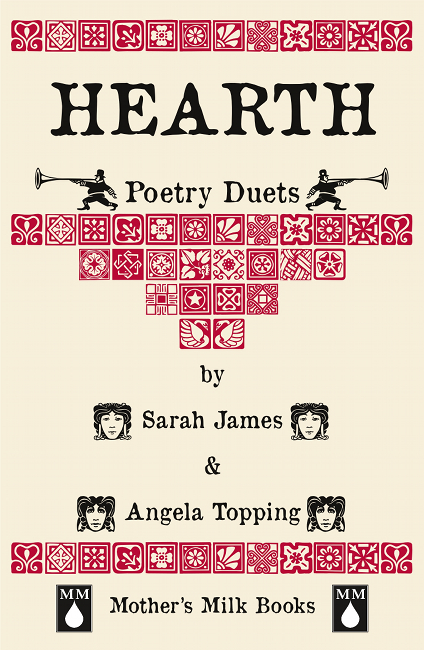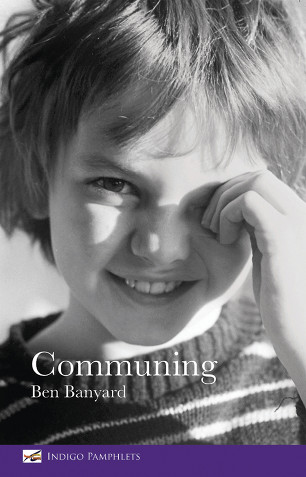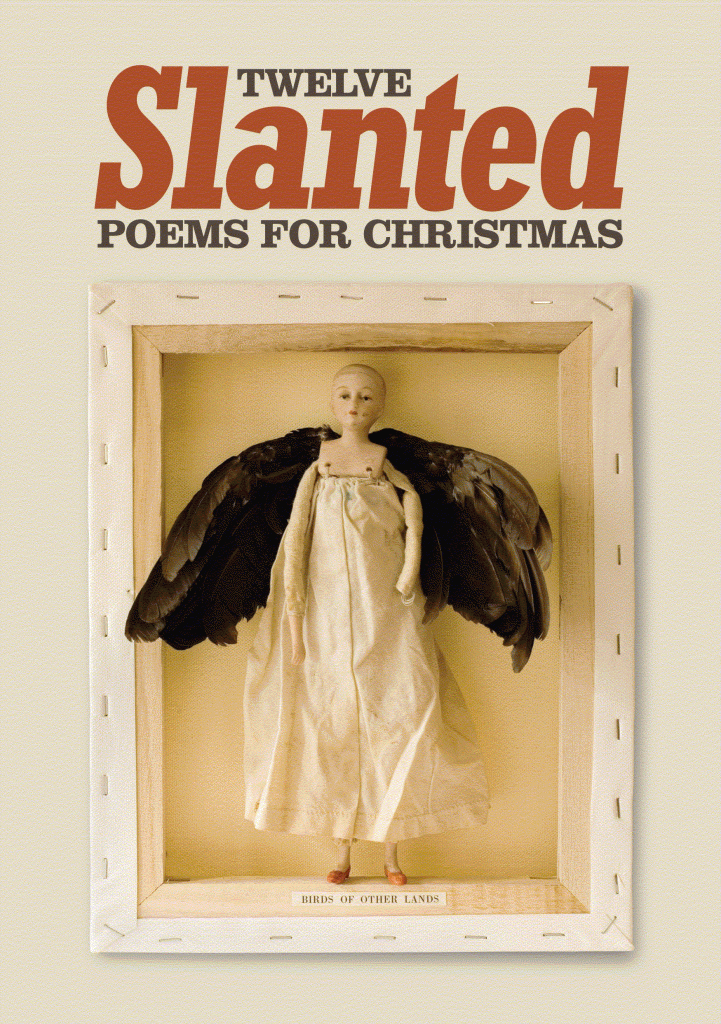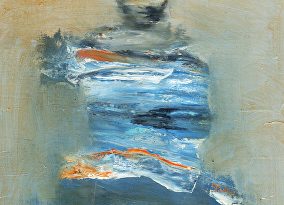Hearth: Poetry Duets by Sarah James & Angela Topping
– Reviewed by Grant Tarbard –
Published by Mother’s Milk Books, Hearth (Poetry Duets) has captured a duo of transcendent poets in a bond of psalms, a call and response between fireplaces, in harmony, like a flock of sparrows. You have to be good to form a cohesive song that doesn’t wander, and it helps that the singers are very talented. Sarah James is an award winning journalist, fiction writer and poet. Hearth is her first poetry duet, but she has three solo poetry collections with Circaidy, Gregory Press and Knives, Forks and Spoons Press.
Angela Topping writes for both adults and children, has given readings for many years and performed at festivals including StAnza and Ledbury, and is widely published with ten solo collections and pamphlets to her name.
An essential ingredient of a good poem is that it can be read aloud effectively: the duet begins with the overture of ‘Crow’s Book of Household Management’ and the accompanying ’Sparrow’s Book of Household Management’. The poems work in unison and are set out as lists of good home maintenance by first James, then Topping, taking a wry but warm look at Mrs Beeton. These are pitched just the right side of surreal, creating a lost-in-the-wardrobe Narnian feathery dream book.
This is from James’ ‘Crow’s Book of Household Management’:
9) Cuckoos, jackdaws and lone magpies should not be trusted.
And number nine, John Lennon’s favourite number, from Topping’s ’Sparrow…’ is wonderful:
9) Should moths get into the piano, spray a mixture of Turpentine, Benzedrine and lavender oil into the workings. Alternatively, eat the moths.
In Hearths you feel the world slipping away, like you’ve willingly set yourself adrift in one of Jonathan Strange’s spells. This paean to James’ memories of hearths from her childhood, her parents and her great grandfather’s, is an arresting paraphernalia of “Poker and tongs buffed to a shine”, her Great Grandpa’s tartan blankets and oxygen tank. I want to swallow this poem and call it my own, with this line particularly:
and flickers of childhood, when coal
loosed orange petals, shadow wolves
and the singed skin of spitting embers.
Topping crafts a tremendous response with ’Firelighting’:
Now, I watch as she rolls and twists
the newspaper carefully saved for this,
makes a nest for sticks to lie in,
coddles the match, poking it intothe printed caves she has created.
How remarkable the image rendered here: like Plath’s cut thumb the everyday becomes a piece of magic you can carry with you, the lost luggage of embers.
James’s ’Musical Boxes’ is a tapestry of rhythm, compelling as a nursery rhyme, catchy as a Christmas carol.
I cannot name this swaying tune,
but my body knows its music.
Topping’s ’Steel Music’ is an acorn stuffed with the eternal enigma of what’s inside the box? that bewitched Pandora. The poem is an ode to a music box, perhaps the kind that has a little clockwork pirouetting ballerina inside, the poet playing with the idea that children’s toys are inherently partisan toward male and female:
Meant to be hidden inside a box
or charming miniature plaything;
I prefer to spy out the mechanism
This is a melodious book. With ’The Piano in the Room’ (James) and ‘What became of the Black Piano’ (Topping), the poets cradle recollections, with James unwilling to play to the song of tea cups:
“From her cups’ mouths, the stirring bells
of silver spoons taunt my unglazed hands”
and Topping’s doleful reminiscence of her broken piano, the instrument being not “its dumb keys” but the chop of the axe taken to it before burning.
Pedals are silenced tongues
put out for holy communion.
In ‘Crow Lines’, the final poem of this all too short collection, the poets join each other. The poem begins with the first stanza of ’The Twa Corbies’, a 17th Century poem Scottish poem by the greatest of poets, Anon, which concerns two crows, or ravens, discussing the body of a knight lying behind a wall.
Topping and James occupy the delicate marrow of this classic and redress it with almost the verbal gallantry of ’Under Milk Wood’;
Mrs Williams at No. 8 swings a towel
across her washing line. Shadows hook
the grass. She takes her cedar prop,
raises their dancing like giant kite bows.
Hearth is almost a lost book, merging nursery rhyme, folklore and homespun tales of tea and china: a fable of flickering coals, to be read aloud on a winter’s evening. All the poems are written by poets at the top of their game, maestros of their art. I cannot recommend this book enough. All thanks to Mother’s Milk Books for publishing it. What are you waiting for? Go, grab a copy!





